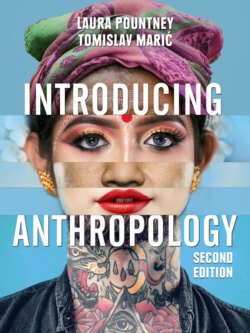Читать книгу Introducing Anthropology - Laura Pountney - Страница 135
Habitus
ОглавлениеPierre Bourdieu (1977) elaborates on the concept of habitus by explaining its dependency on history and human memory. For instance, a certain behaviour or belief becomes part of a society’s structure when the original purpose of that behaviour or belief can no longer be recalled and becomes socialized into individuals of that culture. According to Bourdieu, the body is the most certain reflection of class taste – for example, in the way that someone’s hairstyle, clothing, diet, or even their manner of walking, functions to signal social class position within the structure of society. Bourdieu places bodies within modern consumer culture, arguing that the body bears the imprint of social class based on habitus (an internalized framework or set of guidelines for social action, taste and social location). The body is a resource for, and can be converted into, economic, cultural and social capital. Bourdieu conducted fieldwork in Algeria and studied the culture of the Kabyle people. Their main habitus is based on honour, which underpins their basic schemes of thought and action. This provides them with a model of action even in new situations. The lifestyle, values and expectations of Kabyle people that are learnt through the activities and experiences of their everyday life are reflected in their body language. Bourdieu suggests that habitus can be changed throughout the lifetime of an individual.
habitus The lifestyle, values, dispositions and expectations of particular social groups that are acquired through the activities and experiences of everyday life
